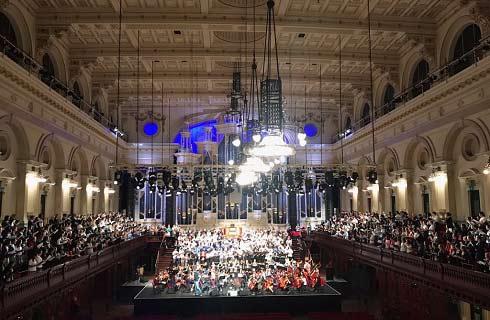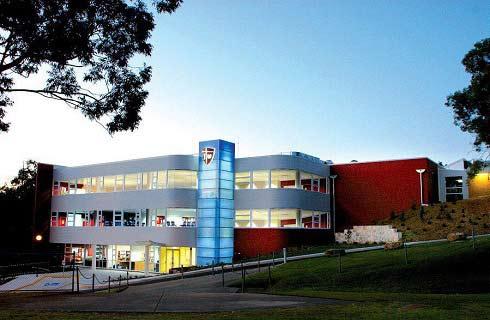纳米微系统工程哲学博士
Doctor of Philosophy in Nano - Microsytems Engineering

学历文凭
Ph.D.

专业院系
Department of Biomedical Engineering

开学时间

课程时长

课程学费

国际学生入学条件
IDP—雅思考试联合主办方

雅思考试总分
- 雅思总分:
- 托福网考总分:
- 托福笔试总分:
- 其他语言考试:
CRICOS代码:
申请截止日期: 请与IDP联系 以获取详细信息。
课程简介
纳米和微系统生物工程涵盖两个广泛的相互关联的主题:纳米生物技术和生物MEMS。纳米生物技术旨在制造可用作传感器,诊断和治疗实体的分子元素和组装的簇,材料和设备。BioMEMS使用的微细加工技术使电子行业发生了革命性的变化,从而发展了对制药,生物技术和医疗设备行业产生巨大影响的芯片和系统,并有望显着改变二十一世纪的医学实践方式。纳米加工和微加工的进步为以复杂的方式研究复杂的生物学问题提供了新的机遇。特别地,可以通过工程化细胞响应的化学和物理环境来检查细胞过程的空间调节。纳米生物技术还促进了纳米级药物递送系统
Nano- and Microsystems Bioengineering covers two broad interrelated topics: Nanobiotechnology and BioMEMS. Nanobiotechnology is aimed at fabricating molecular elements and assembled clusters, materials, and devices that can be used as sensors, diagnostics and therapeutic entities. BioMEMS uses the microfabrication techniques that have revolutionized the electronics industry towards the development of chips and systems that have had tremendous impact on the pharmaceutical, biotechnology, and medical device industries and are poised to significantly change the way medicine is practiced in the twenty-first century. Advances in nanofabrication and microfabrication are opening new opportunities to investigate complex biological questions in ways not before possible. In particular, the spatial regulation of cellular processes can be examined by engineering the chemical and physical environment to which the cell responds. Nanobiotechnology has also fostered the development of nanoscaled pharmaceutical delivery systems which include the use of micelles, liposomes, solid lipid nanoparticles, polymeric nanoparticles, functionalized nanoparticles, nanocrystals, cyclodextrins, dendrimers, nanotubes and metallic nanoparticles as new vehicles to deliver conventional pharmaceuticals, peptides, recombinant proteins, and vaccines with improved therapeutic efficiency and reduced side effects. Rutgers has emerging strength in some of these areas. For example, interdisciplinary research has been carried out to develop new nanoparticle delivery systems, which encompasses synthesis, functionalization, and analysis of effects on membranes, cells, and animals. A focus in nanobioelectronics has emerged with applications in health, energy, and environmental studies. Other work includes: novel biosensors, single molecule imaging and characterization using a robotic atomic force microscope, and nanoparticle studies for molecular imaging in disease. Students should complete their PhD degrees in 5 years with a max of 7 years.
Nano- and Microsystems Bioengineering covers two broad interrelated topics: Nanobiotechnology and BioMEMS. Nanobiotechnology is aimed at fabricating molecular elements and assembled clusters, materials, and devices that can be used as sensors, diagnostics and therapeutic entities. BioMEMS uses the microfabrication techniques that have revolutionized the electronics industry towards the development of chips and systems that have had tremendous impact on the pharmaceutical, biotechnology, and medical device industries and are poised to significantly change the way medicine is practiced in the twenty-first century. Advances in nanofabrication and microfabrication are opening new opportunities to investigate complex biological questions in ways not before possible. In particular, the spatial regulation of cellular processes can be examined by engineering the chemical and physical environment to which the cell responds. Nanobiotechnology has also fostered the development of nanoscaled pharmaceutical delivery systems which include the use of micelles, liposomes, solid lipid nanoparticles, polymeric nanoparticles, functionalized nanoparticles, nanocrystals, cyclodextrins, dendrimers, nanotubes and metallic nanoparticles as new vehicles to deliver conventional pharmaceuticals, peptides, recombinant proteins, and vaccines with improved therapeutic efficiency and reduced side effects. Rutgers has emerging strength in some of these areas. For example, interdisciplinary research has been carried out to develop new nanoparticle delivery systems, which encompasses synthesis, functionalization, and analysis of effects on membranes, cells, and animals. A focus in nanobioelectronics has emerged with applications in health, energy, and environmental studies. Other work includes: novel biosensors, single molecule imaging and characterization using a robotic atomic force microscope, and nanoparticle studies for molecular imaging in disease. Students should complete their PhD degrees in 5 years with a max of 7 years.
相关申请
 预科
预科 奖学金
奖学金 实习机会
实习机会 在校学习
在校学习 跨境学习
跨境学习 校园授课-线上开始
校园授课-线上开始 在线/远程学习
在线/远程学习
学校排名

世界排名168
数据源:
泰晤士高等教育世界大学排名
本校相关课程

Doctor of Philosophy in Women's and Gender Studies
学历文凭
Ph.D.
开学日期
课程费用总额


Doctor of Philosophy in Spanish Literature and Culture
学历文凭
Ph.D.
开学日期
课程费用总额


Doctor of Philosophy in Sociology
学历文凭
Ph.D.
开学日期
课程费用总额


Doctor of Philosophy in Social Work
学历文凭
Ph.D.
开学日期
课程费用总额


Doctor of Philosophy in Psychology
学历文凭
Ph.D.
开学日期
课程费用总额


Doctor of Philosophy in Political Science
学历文凭
Ph.D.
开学日期
课程费用总额









 美国
美国
